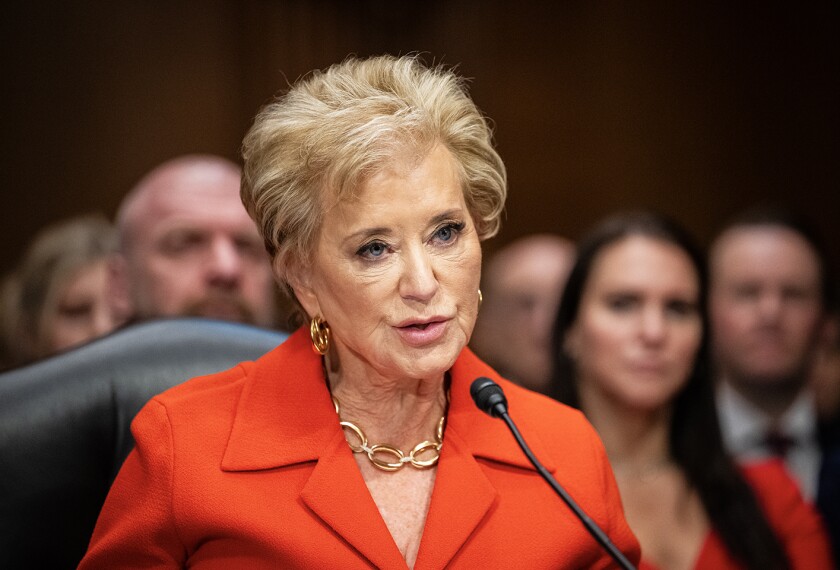A bill that would have updated decades-old federal nutritional standards about which foods may be sold in school vending machines, school stores, and as a la carte cafeteria offerings was dropped in the U.S. Senate during last-minute wrangling over a major farm bill.
The Child Nutrition Promotion and School Lunch Protection Act, sponsored by Sen. Tom Harkin, D-Iowa, and Sen. Lisa Murkowski, R-Alaska, had broad support both from health-advocacy groups and food manufacturers. It would have amended regulations that were last revised in 1979, long before the recent rise in concern over such issues as trans fats in foods and childhood obesity.
The measure was removed from consideration on Dec. 14 before the Senate went on to approve the farm bill.
The U.S. Department of Agriculture currently regulates the types of foods that may be sold under the federally subsidized school breakfast and school lunch programs. The department, however, has much less stringent standards for foods sold alongside regular school meals. States and school districts have in some cases established tougher standards on their own.
The amendment was also introduced in the last congressional session, but never made it out of committee. Sen. Harkin told The Washington Post that he is not giving up on the measure. “We have a lot of support for it,” he said.
Among the changes proposed under the measure: Serving sizes for beverages could be no larger than 8 ounces in elementary and middle schools and 12 ounces in high school, except for water; only low-fat or nonfat milk could be sold; snacks could have no more than 180 calories per serving size in elementary and middle school and 200 calories in high school; and sugars could not make up more than 35 percent of a snack by weight.
The bill authorized exceptions for school-approved fundraisers. Current Agriculture Department regulations are silent on such issues as calorie limits and sugar content.
Fresh Fruit Program
One group that opposed the legislation was the Alexandria, Va.-based School Nutrition Association, which represents school food directors nationwide. An early supporter of the Harkin/Murkowski bill, the organization said it changed its stance because the measure did not offer a uniform national nutrition standard, allowed certain items like sports drinks to be sold in some areas of a school but not in others, and because no funding was offered to offset the costs associated with the new rules.
Still, the Center for Science in the Public Interest, a Washington group that is often at odds with the beverage and snack-food industries, was a strong supporter of the legislation. The center had negotiated with snack-food and beverage companies for six months on the measure, and has supported such changes for several years, said Margo Wootan, the director of nutrition policy at the center.
“This remains a top priority for us in terms of addressing childhood obesity and childhood nutrition. It’s something that parents are asking for,” she said. “I think the time has come. This just wasn’t the venue.” The Senate farm bill, which now must be reconciled with a separate measure passed in July by the House, does include an expansion of the Fruit and Vegetable Pilot Program, which encourages consumption of produce by elementary schoolchildren, particularly in low-income schools, by providing free fruit and vegetable snacks.
The program was included as a pilot in the 2002 farm bill, and the Senate’s current bill would make the program permanent and fund participating schools in all 50 states. The $15 million-a-year program currently operates in 375 schools in 14 states and three Indian-tribal organizations.





